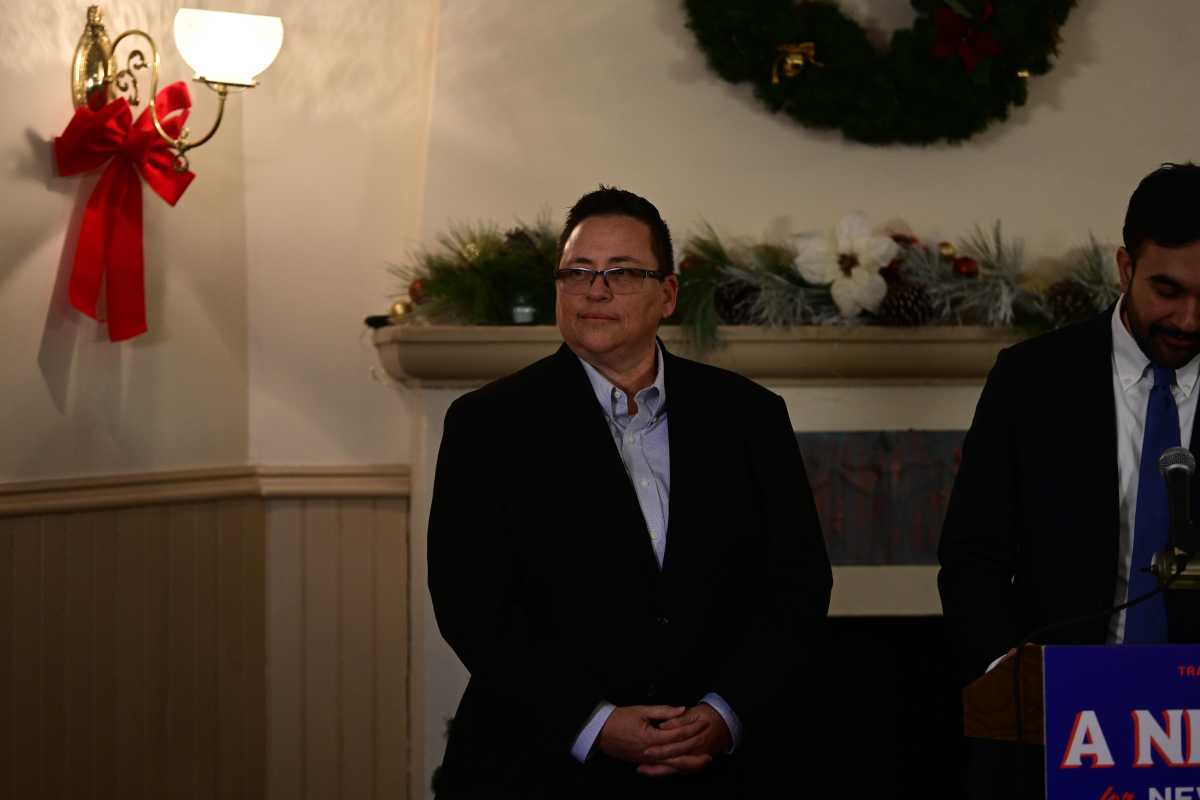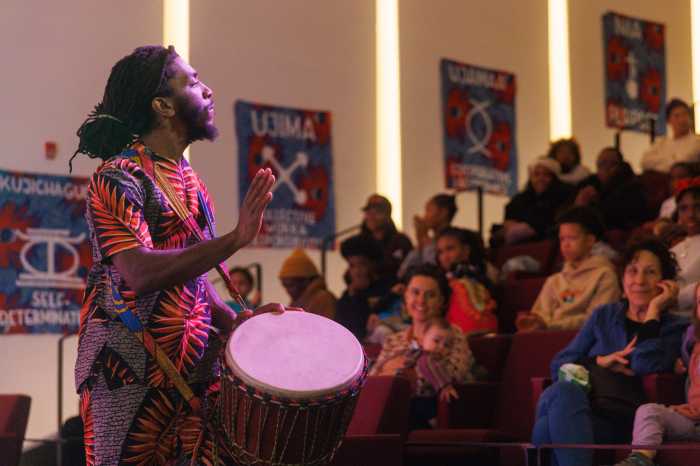Leading gay rights groups remain concerned that nominee’s privacy views not friendly
Despite a glimmer during Judge Samuel Alito’s testimony before the Senate Judiciary Committee that he might sympathize with LGBT plaintiffs, most of the nation’s gay rights groups remain opposed to his nomination for a seat on the U.S. Supreme Court.
Alito, currently a judge on the U.S. Third Circuit Court of Appeals in Philadelphia, was nominated by President George W. Bush to replace retiring Supreme Court Justice Sandra Day O’Connor, who proved to be a moderating force that has helped keep the court from shifting too far to the right. She cast the favorable, and sometimes deciding, votes in a number of important privacy and LGBT cases.
During his testimony over four days, Alito refused to reveal how he might rule on similar cases, at one point saying, in response to a question from Senator Dick Durbin, an Illinois Democrat, regarding whether he would vote to overturn the legality of abortion, “I don’t think it’s appropriate for me to speak about issues that could realistically come up.”
Even when confronted by Senator Dianne Feinstein, a California Democrat, about his willingness to offer comment on landmark desegregation cases, Alito said he did so because such matters were beyond debate. When Feinstein asked him if he thought Roe v. Wade were similarly “well settled in court,” Alito’s response was, “It depends on what one means by the term ‘well settled.’”
And in a brief discussion of gay marriage, Alito only acknowledged there was legal controversy over the constitutionality of the Defense of Marriage Act. DOMA allows states to refuse to recognize gay marriages performed in other states. Many legal scholars say this is a violation of the U.S. Constitution’s Full Faith and Credit Clause that says states must honor each other’s legal agreements.
Judicial appointees’ reticence to answer more specific questions has become the standard, and was particularly fueled by the 1987 rejection of President Ronald Reagan’s nomination of Robert Bork to the Supreme Court. That nomination was sunk, in part, because Bork was overly specific in articulating his ultra-conservative judicial philosophy.
Alito’s lack of specificity did nothing to allay the fears of a number of key LGBT advocates.
“We have the same concerns after the hearing as we did before the hearing,” said Michael Adams, director of education and public affairs for Lambda Legal.
“Judge Alito has an unbroken track record of hostility to Roe v Wade, a case which has tremendous implications for the gay and lesbian community,” Adams said.
In 2003, the Supreme Court’s ruling in the Lawrence v Texas case that struck down the nation’s anti-gay sodomy laws was based on the privacy arguments cited in 1973 to guarantee a woman’s right to abortion. Gay rights advocates fear any change in the legality of abortion could be employed to argue that states also have the right once again to interfere in the private sexual lives of LGBT Americans.
“His answers to questions were really just dodges and did not contradict his record that caused us to oppose his nomination in the first place,” said Lara Schwartz, legislative director for the Human Rights Campaign. “Most troubling was his hostility to privacy issues and the authority of Congress when enacting hate crimes or non-discrimination employment statutes.”
The only positive sign Alito offered gay advocates and others interested in his approach to controversial issues in an otherwise passive defense was his mention of a case in which he ruled for a young man who left his high school because of homophobic harassment, and wanted his school district to pay for his schooling at an institution outside his neighborhood.
“This was a case in which a… student had been bullied unmercifully by other students because of their perception of his sexual orientation,” Alito said. It was a victory for “the small person who was challenging a big institution,” he said.
Alito’s comments came after Illinois’ Durbin said that most of the judge’s rulings had been against those claiming discrimination. In the harassment case, however, Alito overruled a lower court’s decision that sided with the school district.
“It just shows he can correctly apply the law which mandates a free and appropriate education. It’s really not an GLBT case,” said HRC’s Schwartz. “He would have to have come up with a really strong argument why he would reverse the law.”
In an interview, Matt Foreman, executive director of the National Gay and Lesbian Task Force simply called Alito’s answer “calculated.”
“The one moment where he decides he can give a definite answer he picks this case,” Foreman said. “It was a political move meant to demonstrate his tolerance.”
Lambda’s Adams concurred.
“He would have had a hard time reaching a different conclusion given the state of the law,” he said.
In another school bullying case, Alito overturned a school district’s anti-harassment policy that banned “hate speech” because it prevented Christian students from expressing the view that they believed homosexuality was immoral.
In the Senate hearing Alito called the policy “too broad.”
The otherwise dry proceedings were enlivened when Senator Ted Kennedy, a Massachusetts Democrat, questioned Alito about the Concerned Alumni of Princeton. Alito listed his membership in the group when applying for a job in the Reagan administration. Kennedy read from an article in a magazine published by CAP.
“Everywhere one turns, blacks and Hispanics are demanding jobs simply because they’re black and Hispanic, the physically handicapped are trying to gain equal representation in professional sports, and homosexuals are demanding that government vouchsafe them the right to bear children,” Kennedy read from one issue.
Alito claimed that such sentiments were opposite to his own and that he had never read the essay. He said he could not remember much about CAP or why he listed the group on his résumé. An investigation by the Judiciary Committee found no mention of Alito in the group’s records.
Among leading LGBT organizations, only the Log Cabin Republicans were unwilling to condemn Alito’s nomination. However, the group’s executive director, Patrick Guerriero, said neither would Log Cabin endorse Alito.
“Judge Alito has the right temperament, character, and experience to be a competent Supreme Court justice,” Guerriero said. “However, because we lack clarity on where he would fall on issues of basic fairness for LGBT families, we have withheld our endorsement.”
The Judiciary Committee is expected to approve Alito’s nomination next week, likely on a 10-8 strict party-line basis. The full Senate must then vote on his nomination. Only a filibuster by Democrats could block his confirmation to the U.S. Supreme Court, and it appears that Republicans could peal off enough Democratic votes to halt such a tactic. It appears as if the Democratic leadership has already counted the votes and concluded it cannot provide 41 votes to sustain a filibuster.
Gay advocates, though, are not ready to throw in the towel yet.
“What is critical now is that we put pressure on key senators who might have the guts to say ‘No,’” said the Task Force’s Foreman.
gaycitynews.com

































